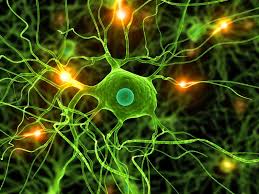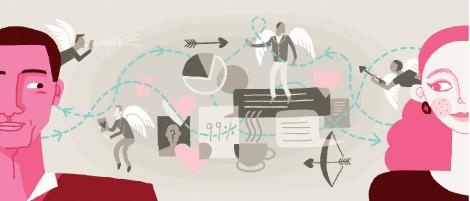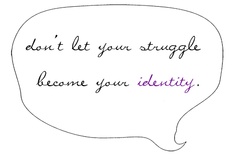Being a connector
 There is always a moment in a conference, a networking event or a birthday party when somebody asks you what you do for a living.
There is always a moment in a conference, a networking event or a birthday party when somebody asks you what you do for a living.
And in that moment, I wish I could answer something simple, plain and easy as baker, lawyer or tattoo master. But instead, I find myself struggling with a simple, understandable and straightforward answer.

I am still to find a profession in the Monster categories reflecting what I have been engaging in for the past ten years. Entrepreneur? Intrapreneur? Ecosystem builder?
So lately, I named myself a connector.
A superhero with special powers and the doubts that come with them.
Let’s see if you identify yourself as well!
Superpower #1: Matchmaker

The connector loves to get awesome people from opposite worlds talk to each other. He thrives connecting the dots, breaking the silos between airtight ecosystems.
He does not actually break the boundaries but make them more permeable, getting the relationships more liquid.
Through challenging the stereotypes, he accelerates serendipity, making magic happen by putting in touch the right people or the right networks at the right time. Like an acupuncture master, he releases the energy and ensures the whole machine works better. He catalyzes change.
Superpower #2: Dreamer 
The connector is an idealist, he deeply believes in a better world. He does not connect for the sake of it, as a Linked in addict. He does so because he thinks that these connections will either foster great projects or at least help one of the side find its true calling. And he feels fulfilled by it.
He wishes to inspire, to engage other people in social change, to infect the society with his own virus, would it be through a massive system shift or with little poppies converting the world one step at a time.
Superpower #3: Multiple personality disorder
Like in United States of Tara, a connector does have this polymorphic personality allowing himself to immerse in Burning Man as well as in Davos. Adapting to the environment. Fitting in. You can invite him to any party, he will put on his chameleon suit and dive in. He can speak differently, dress differently and still be able to mingle and fit in.
Superpower #4: Ubiquity
He IS literally everywhere, spreading so thin he might actually disappear, thriving in the horizontality more than the verticality, the multiplication of projects which “retrofeeds” themselves more than in a specific one.
He loves to be a “parallel entrepreneur” and to see how his different ventures all contribute to his overarching theme, whatever it is.
His friends have a hard time following him on Facebook and understanding what he does but he seems to be happy so that’s OK.
As a true global citizen, the world is his village and he could actually work from anywhere anytime provided he has his Mac, decent wifi and coffee.
Perhaps the connector is commitment-adverse, but let’s not talk about that…

Superpower #5: Mille-feuilles syndrome
The connector acts at different levels. He can be a demiurge architect, a puppet master designing the system. But he can also be the builder, the systems diplomat between different networks or cities, or he can thrive being the very brick himself as the entrepreneur at the bottom of the pyramid.
Which means that he manages to multiply himself in different dimensions, from the macro to the micro, from the corporate to the alternative, from the rural area to the developed city. And this kaleidoscope allows him to see the reality in so many different angles, getting the best of each tribe!
Yet, being a connector is not always easy. His superpowers also bring in a few headaches…
Neurosis #1: Connectors all suffer from ADHD.
Let’s be honest. It’s hard to be everywhere, all the time, have 50 open windows in your browser, tons of unanswered emails and Whatsapps and be cool about it. He’s so passionate about what he does that he has a hard time leaving his technological devices and might miss what is actually happening next to him. He’s not always the most present attentive friend he wish he was and could be more mindful sometimes…
Multiplying friends on social networks ends up giving him #fomo syndrom. Why is he in Morocco right now and not @sxsw??? His attention span is getting so limited that if he wants to stay focused and efficient, sometimes, he actually needs to decelerate…
Neurosis #2: Connectors have an identity struggle.

The connector always has this weird feeling that he actually does not belong where he is. Because he belongs everywhere and nowhere. Or only perhaps when he hangs out with other connectors …
So where is his home? Where does he feel at peace?
And the difficulty to put him in a box makes him sometimes even question his real value…
Neurosis #3: Connectors are hardly recognized.
People have a hard time understanding what they do. Some connectors are framing their activities in a physical space, a coworking or an incubator that makes it easier for others to understand their role.
But a virtual connector has a harder time. Being a constant catalyzer, he runs the risk of burning himself in the process. Constantly holding the space for others, he’s threatened to lose himself into it. What is he doing for himself at the end of the day?

Neurosis #4: Connectors are not financially valued.
Being the intermediary, the middleman, the connector is not always visible to others, the value is not so tangible which leads to frustration and exhaustion.
Since his role is sometimes confusing, how can he monetize his skills, especially in a world where we are all a Facebook friend away from anybody?
And even if the traditional diplomat function is valued and funded, the networks diplomat is not a structured profession. Yet.
So how do we cheer up our superhero? How do we value this indispensable mortar?
By creating a League of connectors as now exists a League of intrapreneurs?
Let’s all come back to Bali to think it over…
Uncategorized

